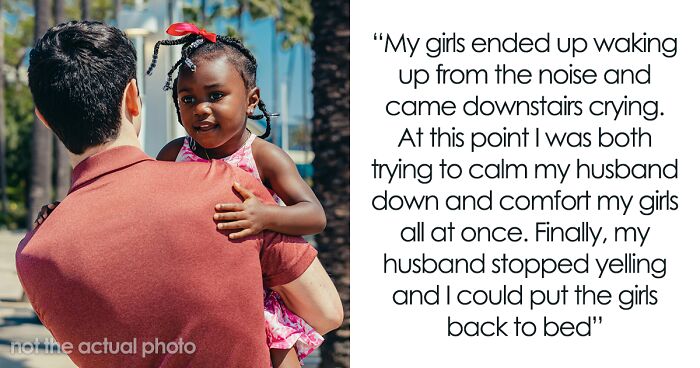
“AITA For Refusing To Adopt Another Child And Possibly Divorcing My Husband Over It?”
The decision to have a combined family of biological and adopted children may pose unusual challenges for parents who want the best for both kids. The situation can become particularly interesting when one of the parents is adopted themselves and may have a softer spot for their adopted child, considering all they’ve been through.
This is the case for Reddit user u/Critical-Physics-999, who recently turned to the community to share her story of a husband that consistently favors his adopted daughter over his biological one. The problem has gotten so serious that OP is now considering divorce.
More info: Reddit
Pregnant woman at her wits’ end over hubby’s unequal treatment of their biological and adopted daughters
Image credits: Kindel Media (not the actual photo)
“I’ve brought this up constantly to him and I’m at my breaking point,” said pregnant mom of two
Image credits: Gustavo Fring (not the actual photo)
“Why doesn’t daddy love me anymore?” asked their biological daughter
Image credits: Ketut Subiyanto (not the actual photo)
Woman met with a lawyer before giving divorce ultimatum to adopted hubby
Image credits: u/Critical-Physics-999
“I have both girls in therapy already,” lamented the frustrated mother of two
The OP, a 33-year-old woman, takes us back to the beginning, with her meeting her husband in varsity after a mutual friend set them up. It was love at first sight, and, while dating, her BF let her know that he wanted to adopt kids, and that if OP wasn’t OK with that, they should end the relationship.
OP agreed, given that her BF was adopted himself and wanted to pay it forward, but at the same time made it clear that she also wanted biological children, which her BF had no issues with. Two years later, the couple finished their degrees and got married.
Today, the couple have two children, a 5-year-old biological daughter and a 7-year-old adopted daughter. They started fostering when their biological daughter was a newborn and adopted their other daughter about a year ago.
Lately OP has noticed something peculiar – her husband seems to favor their adopted daughter over their biological one.
She says he regularly takes her out for bonding time, but either leaves his biological daughter behind or drops her off somewhere else. She adds that he neglects her in other ways, like practically ignoring her at home.
According to OP, both daughters are smart, beautiful, joyous girls, but her adopted daughter struggles a bit in school, which hubby uses as an excuse to shower even more attention on her.
When OP let her husband know that she was three months pregnant, his first reaction was a bewildering, “When can we start fostering again?” OP tells us that two weeks prior, her biological daughter asked her, “Why doesn’t daddy love me anymore?” That was the final straw.
OP contacted a divorce lawyer, who let her know that nearly everything would be in her favor. Considering her husband makes substantially less than she does, OP tells us that she would easily be able to maintain her lifestyle, while hubby would struggle, a fact that could exclude him from adopting kids in the future.
Assured, OP put her foot down and told her husband that either he treats their daughters equally, or she would file for divorce. He responded by blowing his top, calling her a [jerk] and claiming that she doesn’t understand what it’s like for adopted kids.
OP says she’s afraid that if something happens again, she might snap. She tells Reddit that both daughters are already in therapy and goes on to ask the community for any advice, or even criticism.
Image credits: cottonbro studio (not the actual photo)
From what we can gather from OP’s post, it seems like her husband is carrying a lot of baggage about being adopted, and it’s jeopardizing their marriage. According to the Center For Treatment of Anxiety and Mood Disorders, adopted adults suffer from:
- Feelings of loss and grief
- Problems with developing an identity
- Reduced self-esteem and self-confidence
- Increased risk of substance abuse
- Higher rates of mental health disorders, such as depression and PTSD
A study by Silverstein and Kaplan identified 7 core issues in adoption: loss, rejection, guilt/shame, grief, identity, intimacy, and mastery/control. They say that many of the issues inherent in the adoption experience converge when the adoptee reaches adolescence.
At this time three factors intersect: an acute awareness of the significance of being adopted; a drive toward emancipation; and a biopsychosocial striving toward the development of an integrated identity.
In an article for verywellmind, Theodora Blanchfield writes that there are about seven million adoptees living in the United States, and approximately 140,000 are adopted each year. While many people look at adoption as something beautiful—and it can be—the truth is that adoptees may deal with significant mental health effects after being adopted.
Blanchfield goes on to add that adoption is often forgotten when speaking about trauma, leading to a form of disenfranchised grief, which is grief that is not typically acknowledged or validated by society.
A meta-analysis (review of studies) about adoptees’ mental health found higher levels of depression and anxiety than in non-adoptees, with bipolar disorder and major depressive disorder as the two disorders most associated with adoption.Additionally, adoptees are more likely to attempt suicide.
“It’s not natural for a baby anything to be separated immediately from its mother,” says Lesli Johnson, LMFT, a therapist who works with adoptees. The good news is that adoptees go to therapy at a higher rate than non-adoptees; they are represented twice as much as non-adoptees in therapy.
Adoption can feel like a very unique and isolating experience that few understand. A support group of other adoptees may help an adoptee feel less alone.
Such groups, whether in person or online, help them connect with others who have had similar experiences. This can be a great source of encouragement, understanding, and valuable information.
From what OP tells us in her post, it would seem that her husband could benefit from some form of therapy to help him work through his issues in a safe space. Perhaps it would lead to him having a more balanced relationship with his daughters.
What would you do if you were in OP’s position? Would you stick to the ultimatum, or try to persuade hubby to join his daughters in therapy? Let us know your opinion in the comments section below!
The Reddit community had plenty to say on the matter, with a whopping 2.2k comments
Poll Question
Thanks! Check out the results:
I'm adopted (was adopted at birth) and while I've had my own issues with my abusive adoptive mom (as some of you Pandas know), my adoptive dad was amazing and treated me 100% like a full daughter. I am, ironically, a lot more like him than my sister is (she is our parents' bio child.) I can say that I do not personally understand *some* people who say they want children, love children, etc. but they only want biological children and refuse the idea of fostering/adoption. However, OP's husband is equally strange to me - how could you not love ALL your children, bio AND adopted? My dad could and did. I understand husband was adopted himself, but he needs therapy to help him work through his clearly unresolved trauma from being adopted as an older child. He should love both of his daughters - because they are BOTH his daughters. Signed, an adopted daughter who loved and misses her father terribly <3
I very much wanted to adopt out of foster care. After 4 years I had to accept that they simply wouldn't give a single atheist a kid. I just couldn't do foster care. The idea of loving a kid and having to give them up to god knows what kind of situation was just too much for me. I know me. i'd never survive that.
Load More Replies...Kids who have been in foster care do need a different style of parenting. At best, the uncertainty that has marked their life will leave scars for the rest of their life, at worst there is some truly horrifying things in their past that necessitated the removal in the first place. They need therapeutic parenting. That is not a good reason to not spend time with Rosie. The scars foster care leave are real though. He himself is a good example of how it will effect you for life. He's going to have trouble connecting with bio's childhoods because it doesn't mirror his experience. That is no excuse not to try. Dad needs serious therapy.
Wanted to say exactly the same as you! The problem seems to start with the fact that he didn't grow up like a normal kid in a family, so he can't relate to his bio daughter. He should go to therapy like adopted daughter does
Load More Replies...I'm adopted (was adopted at birth) and while I've had my own issues with my abusive adoptive mom (as some of you Pandas know), my adoptive dad was amazing and treated me 100% like a full daughter. I am, ironically, a lot more like him than my sister is (she is our parents' bio child.) I can say that I do not personally understand *some* people who say they want children, love children, etc. but they only want biological children and refuse the idea of fostering/adoption. However, OP's husband is equally strange to me - how could you not love ALL your children, bio AND adopted? My dad could and did. I understand husband was adopted himself, but he needs therapy to help him work through his clearly unresolved trauma from being adopted as an older child. He should love both of his daughters - because they are BOTH his daughters. Signed, an adopted daughter who loved and misses her father terribly <3
I very much wanted to adopt out of foster care. After 4 years I had to accept that they simply wouldn't give a single atheist a kid. I just couldn't do foster care. The idea of loving a kid and having to give them up to god knows what kind of situation was just too much for me. I know me. i'd never survive that.
Load More Replies...Kids who have been in foster care do need a different style of parenting. At best, the uncertainty that has marked their life will leave scars for the rest of their life, at worst there is some truly horrifying things in their past that necessitated the removal in the first place. They need therapeutic parenting. That is not a good reason to not spend time with Rosie. The scars foster care leave are real though. He himself is a good example of how it will effect you for life. He's going to have trouble connecting with bio's childhoods because it doesn't mirror his experience. That is no excuse not to try. Dad needs serious therapy.
Wanted to say exactly the same as you! The problem seems to start with the fact that he didn't grow up like a normal kid in a family, so he can't relate to his bio daughter. He should go to therapy like adopted daughter does
Load More Replies...
 Dark Mode
Dark Mode 

 No fees, cancel anytime
No fees, cancel anytime 



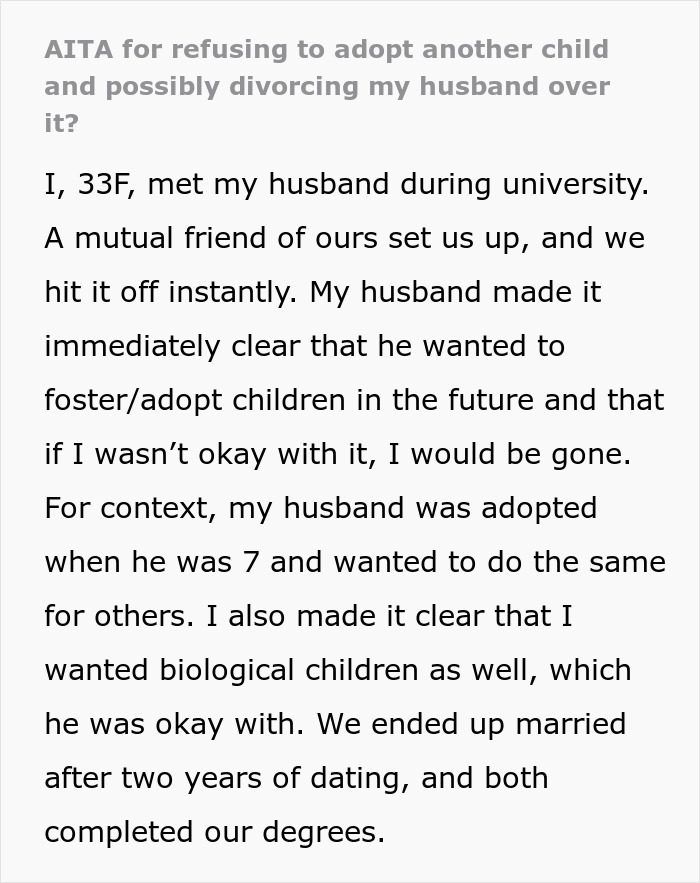
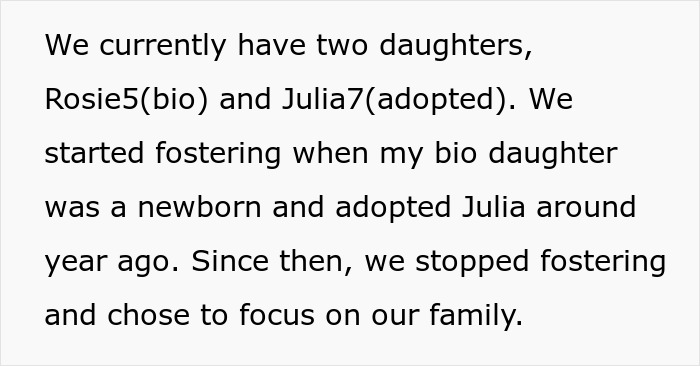
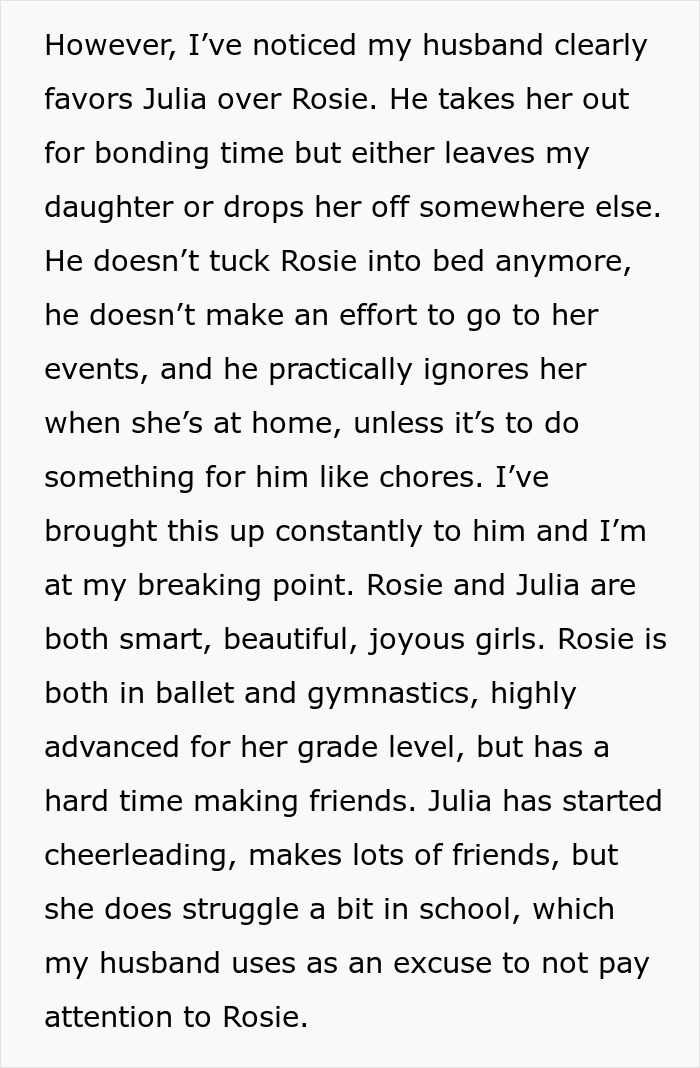
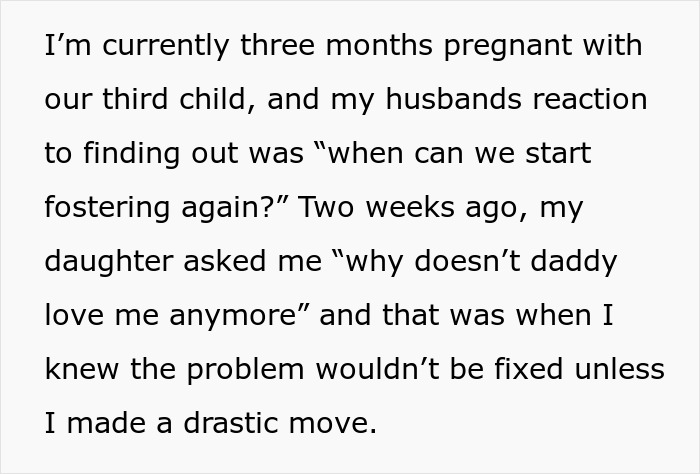








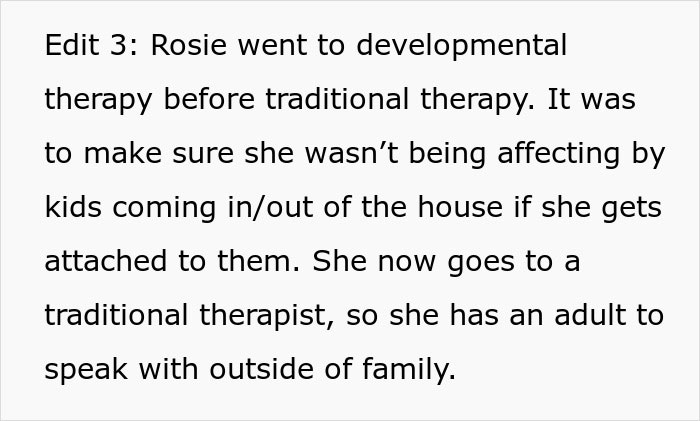

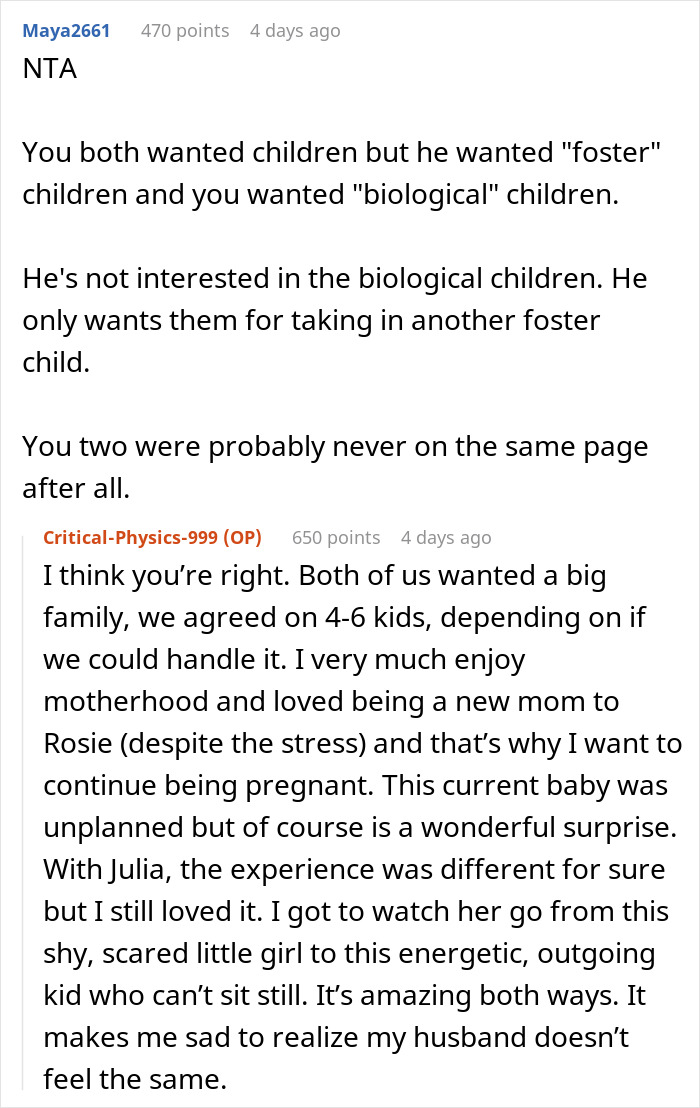
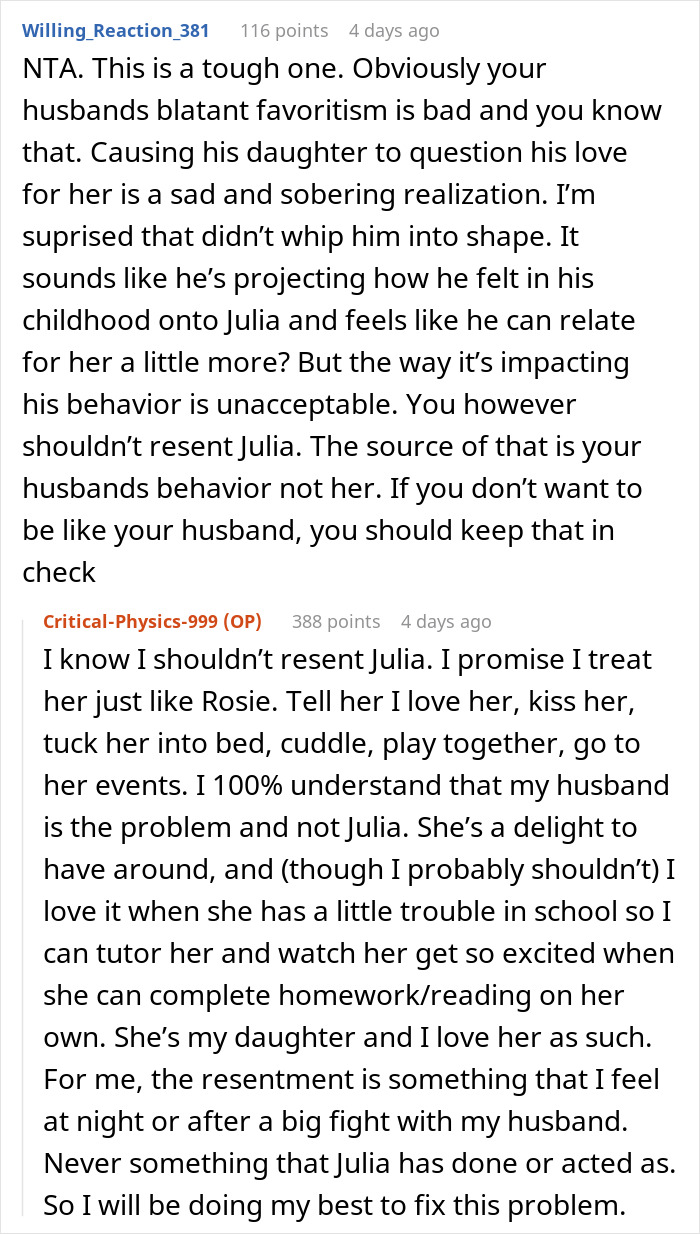
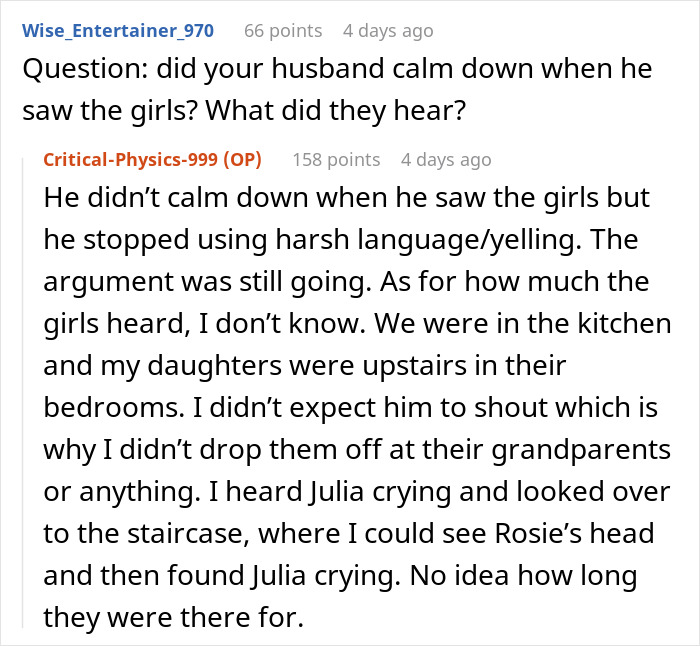
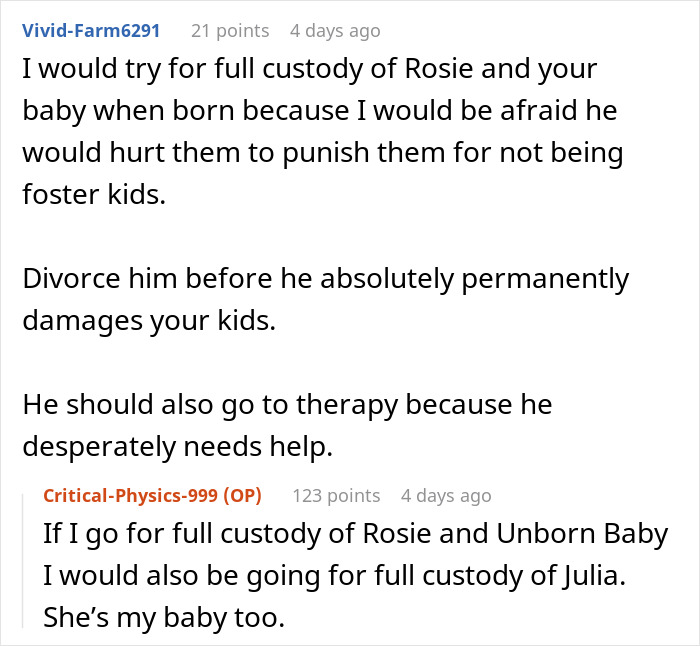
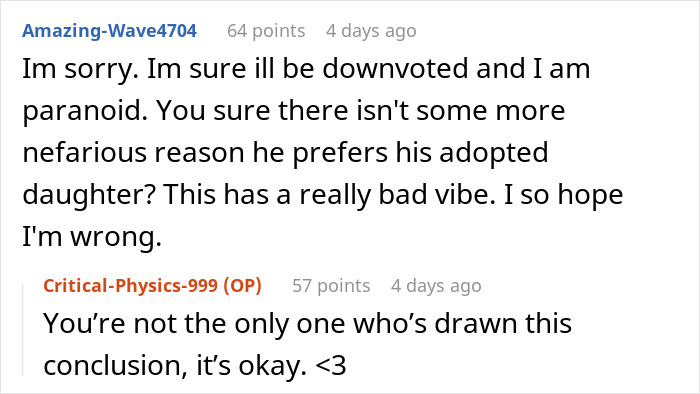
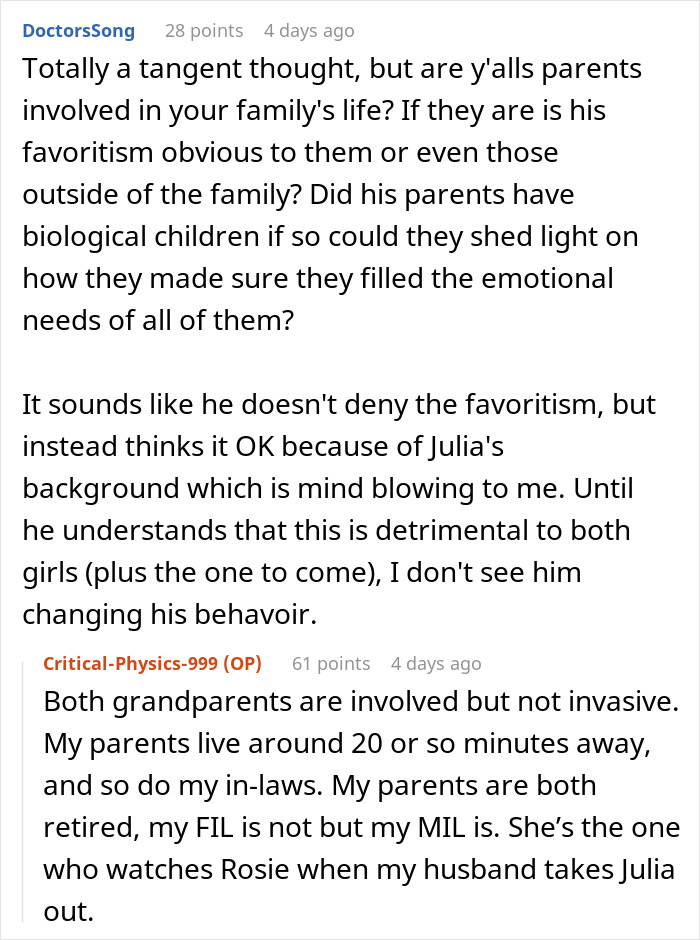
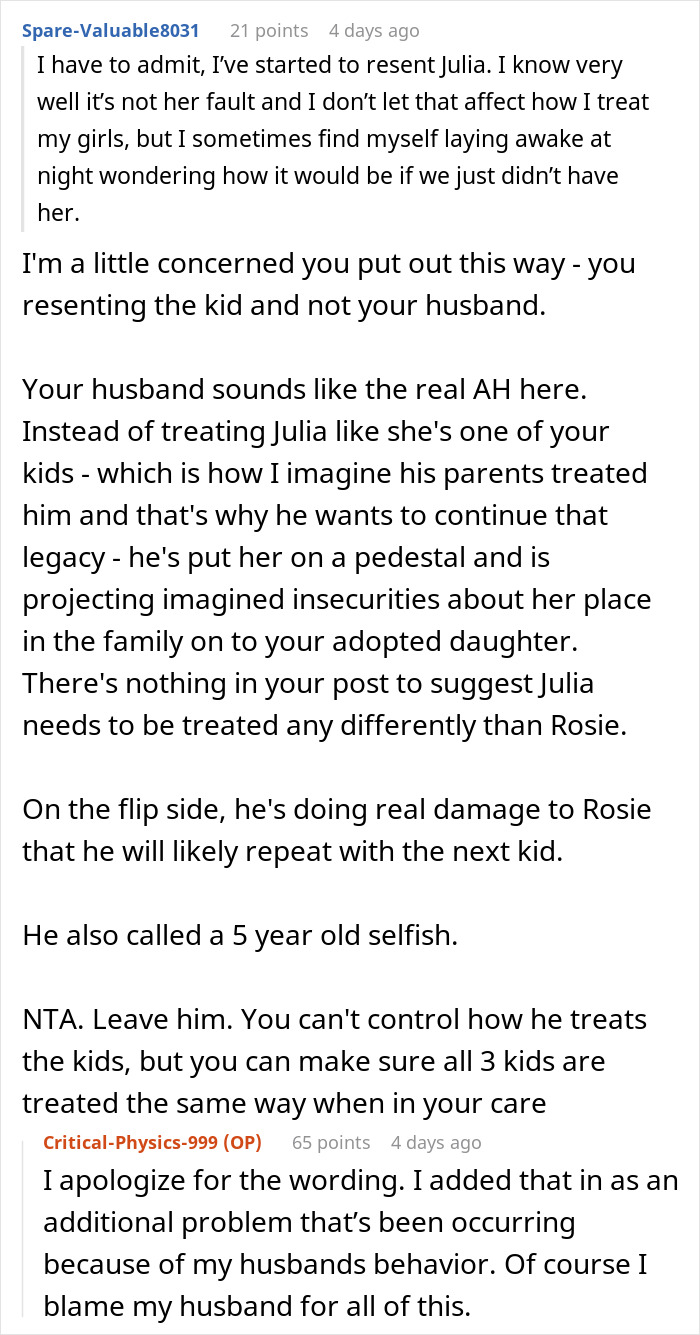
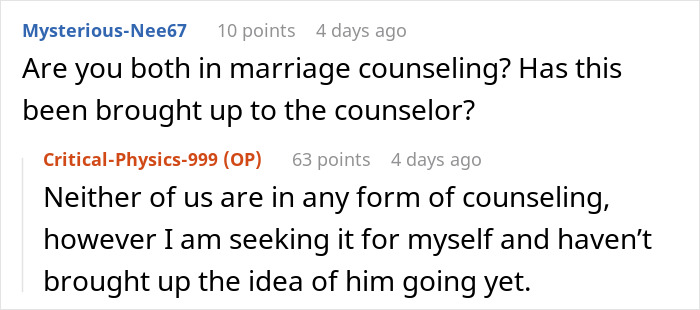
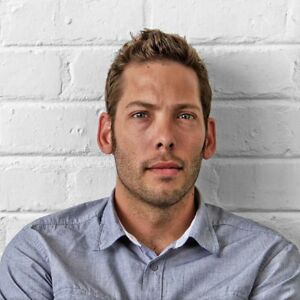











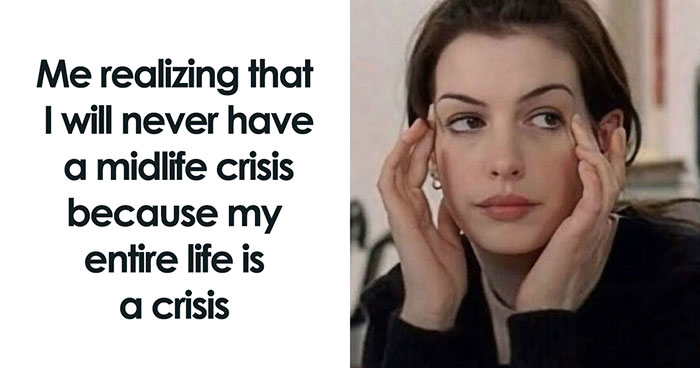

















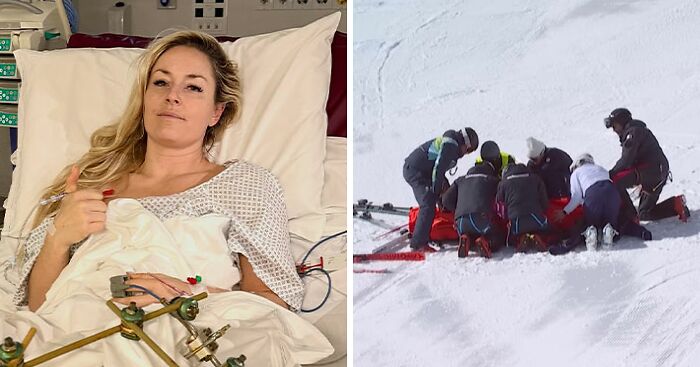

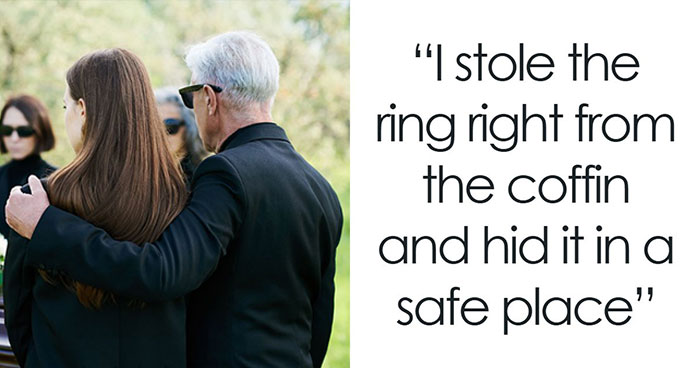
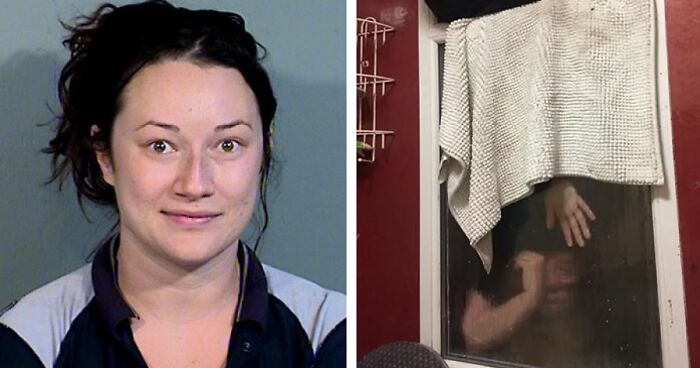










44
36